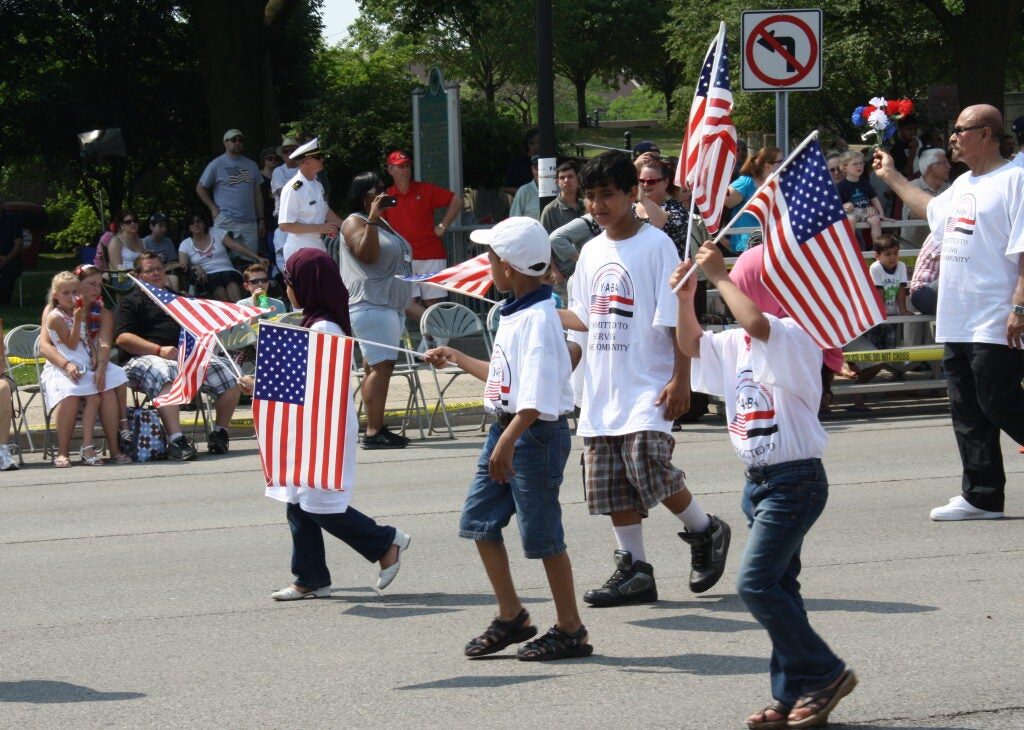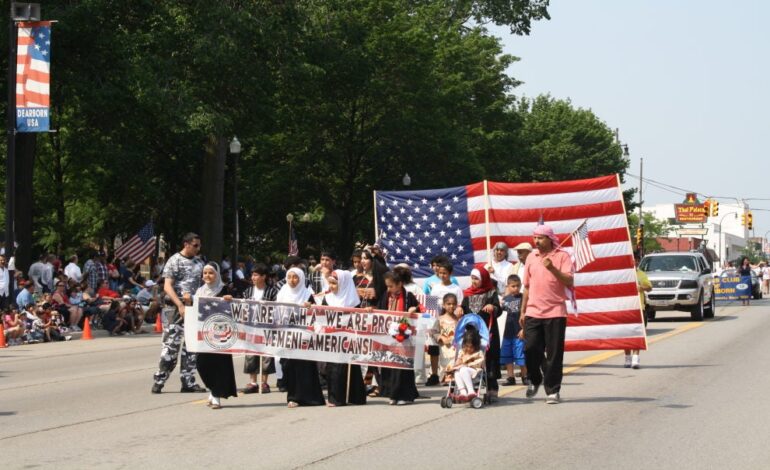
Rasha Almulaiki
It started at childhood. “Yemeni, Yemeni, shower is my enemy.” At 9-years-old, these unforgettable words, among others, were often muttered by my fellow Arab classmates. I painfully recall standing there, frozen stiff as tears of shame and confusion threatened to spill over. As a young Yemeniya, I could not comprehend why I was being ridiculed by those I saw as my own Arab brothers and sisters. In hindsight, this was my introduction to the dark undertone of intra-Arab discrimination in Dearborn.
Other Yemeni students and I were bullied and ostracized from kindergarten through high school. Many times, this visible disdain resulted in several physical altercations with other Arab classmates, both male and female. They would mock our abayas and traditional clothes, ridicule our Arabic dialect and cuisine, and broadly dismiss our Yemeni culture as “backward” and “poor.”
In my teenage years, I recall my mother often changing her Arabic dialect when speaking to our Lebanese neighbors. I eventually realized that this was a strategy to suppress our Yemeni dialect, which is so often regarded as guttural and unintelligible. I learned to mimic this assimilative behavior and adapted a more Levantine dialect and intonations. Until fairly recently, I felt so self-conscious that I avoided speaking my mother tongue altogether when in mixed Arab spaces. I became ashamed of my own culture.
In the ensuing years, I found that my experience navigating discrimination in the Arab community was not limited to the unwitting youth of the schoolyard, or the seemingly casual interactions with community. It took some time, but what I discovered was that this particular “othering” of Yemenis by various Arabs is troublingly prevalent in both public and private spaces.
In my early twenties, I entered the workforce and took a job at a popular Arab restaurant, where the owners and nearly all the staff were Lebanese. As the only Yemeni there, I faced countless microaggressions from the manager and older staff. Derogatory comments about Yemeni food and blatantly stigmatizing questions concerning Yemeni culture dominated the workspace. They weakly offered backhanded platitudes on the “humility” and “simplicity” of Yemenis.
The manager and his family would pick on me relentlessly. At the time, I needed the job to independently pay my way through college. I kept my mouth shut and my head down. When the time came to ask for a raise, I was quickly dismissed. That was my breaking point. I unceremoniously quit, without another means of employment to fall back on. The personal cost was simply no longer worth suffering the unchecked prejudice.
For decades, the Arab American community has been noticeably silent on the oppressive treatment of Yemenis in all spaces of education, business, public office and everyday civil interaction
My ongoing experience is not a singular one. Over the years, I have seen and heard innumerable accounts of Yemenis being subjected to the same derisive comments and treatment by fellow Arabs. This shared experience among Yemenis has been harmfully internalized and normalized.
For decades, the Arab American community has been noticeably silent on the oppressive treatment of Yemenis in all spaces of education, business, public office and everyday civil interaction.
It was not until 2017, when The Arab American News published an article titled “Local Yemenis feel marginalized as Lebanese brethren gain momentum”, that the ground was laid for a public discussion on longstanding issues of intra-Arab bigotry. The coverage was remarkably historic, providing Yemenis a platform to voice their lived experiences of stifled injustice among other Arabs.
Sadly, the article did not gain much traction in stimulating lasting impact and change. Arab Americans continue to engage in the same discriminatory practices, recently reaching a critical point.
When the article recently resurfaced on social media, a group of Yemeni community activists expressed grievances concerning the characterization of Yemenis as victims, which they perceived as condescending. On March 30, The Arab American News published an editorial addressing an upcoming planned protest in front of the news building, by said group.
The editorial asserted that several Yemenis in Hamtramck and Dearborn shared “persistent incidents of disrespect and unfair treatment of a vibrant and mobile Yemeni community by members of Dearborn’s Lebanese contingent.”
One particular quote from the original 2017 article was highlighted in the editorial as inciting the frustrations of the Yemeni protesters. The quote, “Being Yemeni in Dearborn is like being Black in America”, was spoken by a Yemeni American man boldly expressing what he felt was a parallel experience of discrimination. The Arab American News editorial rightfully raised an eyebrow at the affront felt by the Yemeni protesters at such a comparison.
As a community of color, Arabs are no different from other non-White groups that have internalized an understanding of racial superiority. Too often, minority communities measure our worth by our proximity to “Whiteness”, by way of skin color and social standing
Though this is how the young Yemeni chose to express his frustration, we must note that comparing intra-Arab racial oppression to African American experiences is a harmfully reductive appropriation of the latter’s struggles. In addition, this simultaneously erases the Afro-Arabs in our community who contend with intersectional experiences of injustice.
But what’s also clear is the racial implications of the consequent outrage clearly highlight a glaring problem in the Arab American community concerning anti-Blackness and colorism. As a community of color, Arabs are no different from other non-White groups that have internalized an understanding of racial superiority. Too often, minority communities measure our worth by our proximity to “Whiteness”, by way of skin color and social standing.
The Arab American News stood firm in its justification for publishing the 2017 article on the important issue of anti-Yemeni discrimination. The publication went on to concede that, in an effort to avoid community backlash, it cautiously chose not to address other reports of discrimination. This includes “a very publicized incident [last year] on social media of a Lebanese business owner discriminating against her Yemeni clients.”

Yemeni Americans participate in Dearborn’s 2012 Memorial Day Parade
We need to address the problem and heal
We want and need to be heard and recognized. Simply put, the Yemeni American community feels underrepresented in Dearborn
With that being said, the frustrations of the Yemeni protesters and participants in the article all share one thing in common: Yemenis are sick and tired of being swept to the sidelines and placed in a box. We want and need to be heard and recognized. Simply put, the Yemeni American community feels underrepresented in Dearborn.
If this series of events has taught us anything, it’s that underreporting the concerns of a marginalized and increasingly vocal Yemeni community will unavoidably provoke more divisiveness than the public conversations we are afraid to have.
We need to move beyond merely dedicating lip service to the issues that are alarmingly clear and harmful to our community. Platforms that hold considerable clout have a responsibility to support these discussions in a way that is meaningful, equitable and authentic.
We need to talk about it. We need to listen to each other. We need to sit in discomfort, because the alternative of silence is both intolerable and dangerous. If Yemeni youth don’t know it’s okay to talk about discrimination, they will think discrimination is okay. It is not.
As a beautifully diverse community, Arab Americans cannot afford to ignore our complacency in the divisiveness that has fractured our relationships for far too long. Deflecting blame and responsibility will get us nowhere.
Our histories, cultures and struggles are too interconnected. Our prosperity and value as a people are too interdependent. A house divided against itself cannot stand. As an often marginalized and stigmatized group in the U.S, we must be accountable to one another’s sense of belonging.
We owe ourselves opportunities for growth and healing, although uncomfortable; it is poignantly necessary, now more than ever.
– Rasha Almulaiki is a multidisciplinary writer and community organizer, with a particular focus on the intersections of race, gender and politics. A Yemeni American, she was born and raised in Dearborn






Leave a Reply